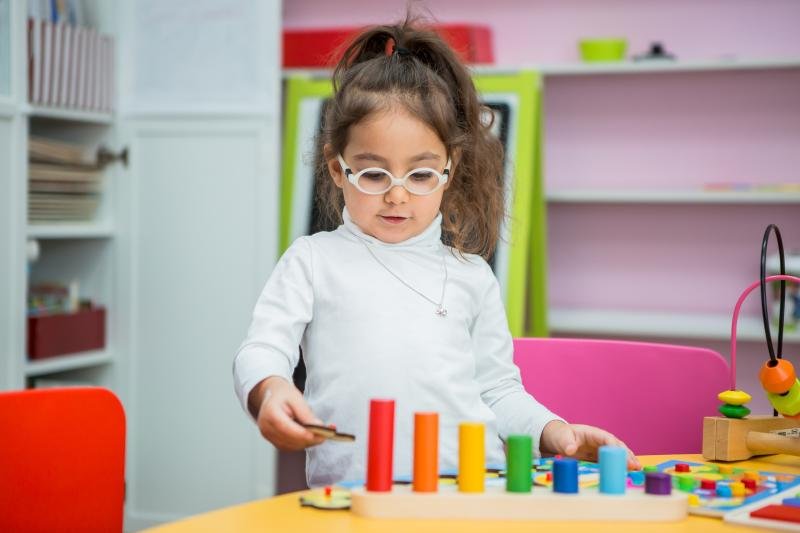
Approaches to learning
The Approaches to Learning domain addresses how children learn- this includes children’s attitudes and interests in learning. This domain reflects behaviors and attitudes such as curiosity, problem-solving, maintaining attention and persistence. Young children’s interests in the world around them influence their learning. They learn through their senses. As childcare and teaches, when we support their efforts in a safe and secure environment, children two years old are willing to try new things and take risks. Encouraging exploration gives young children emotional security, which is necessary for exploring, growing and learning.
Cognitive Development
Cognitive development means how children think, explore and figure things out. It is the development of knowledge, skills, problem solving and dispositions, which help children to think about and understand the world around them. Brain development is part of cognitive development. Play is one of the most essential ways children develop their thinking skills
.As Child care, we provide supplies to children with a variety of new materials exposing them to new experiences, and encouraging them to explore and experiment. Building cognitive skills is an active process that requires hands-on learning. Choose activities that are just difficult enough so that children can learn a new skill or move toward a different way of thinking
Language Development
Language is the tool that helps children make many connections: understanding meaning, sharing feelings and needs, connecting with others, processing new information, solving problems and understanding society’s expectations.
As childcare and teachers, we know thatbooks are very important for young children. A book center can help stimulate children’s imagination and creativity while also building language skills. The book center is a great place for adults to read to children and for children to spend time looking at pictures and interacting with different books.
Physical Development
Physical development is an important area of child development that includes children’s physical growth, as well as their increasing ability to control the muscles of their bodies. Children’s physical development follows a predictable pattern, but each child grows at his or her own rate. Active play helps children develop their motor skills. Child care programs can support children’s physical development by providing safe surroundings, good nutrition and plenty of time for active play and exploration. Learn more about how child …
Social-Emotional Development
Social–emotional development includes the child’s experience, expression, and management of emotions and the ability to establish positive and rewarding relationships with others. Play is one of the best ways for young children to practice expressing and managing their feelings.
As childcare, we can help playdates go smoothly by setting things up for your child and their playmates. For example, set up games where toddlers can play side by side but necessarily have to take turns. Toddlers usually do well with sandpit play, painting, building with blocks, throwing balls, or playing with dolls and cars. But young children can get very frustrated quickly and often don’t have the words to express how they feel. And your toddler doesn’t yet understand the skills he needs for friendship, like sharing, taking turns and solving problems. The more your child plays with other children, the more likely he learns .Engaging in dramatic play enhances young children’s development. Pretending builds social skills, makes children more aware of their own emotions, and encourages shared language and problem solving. program
